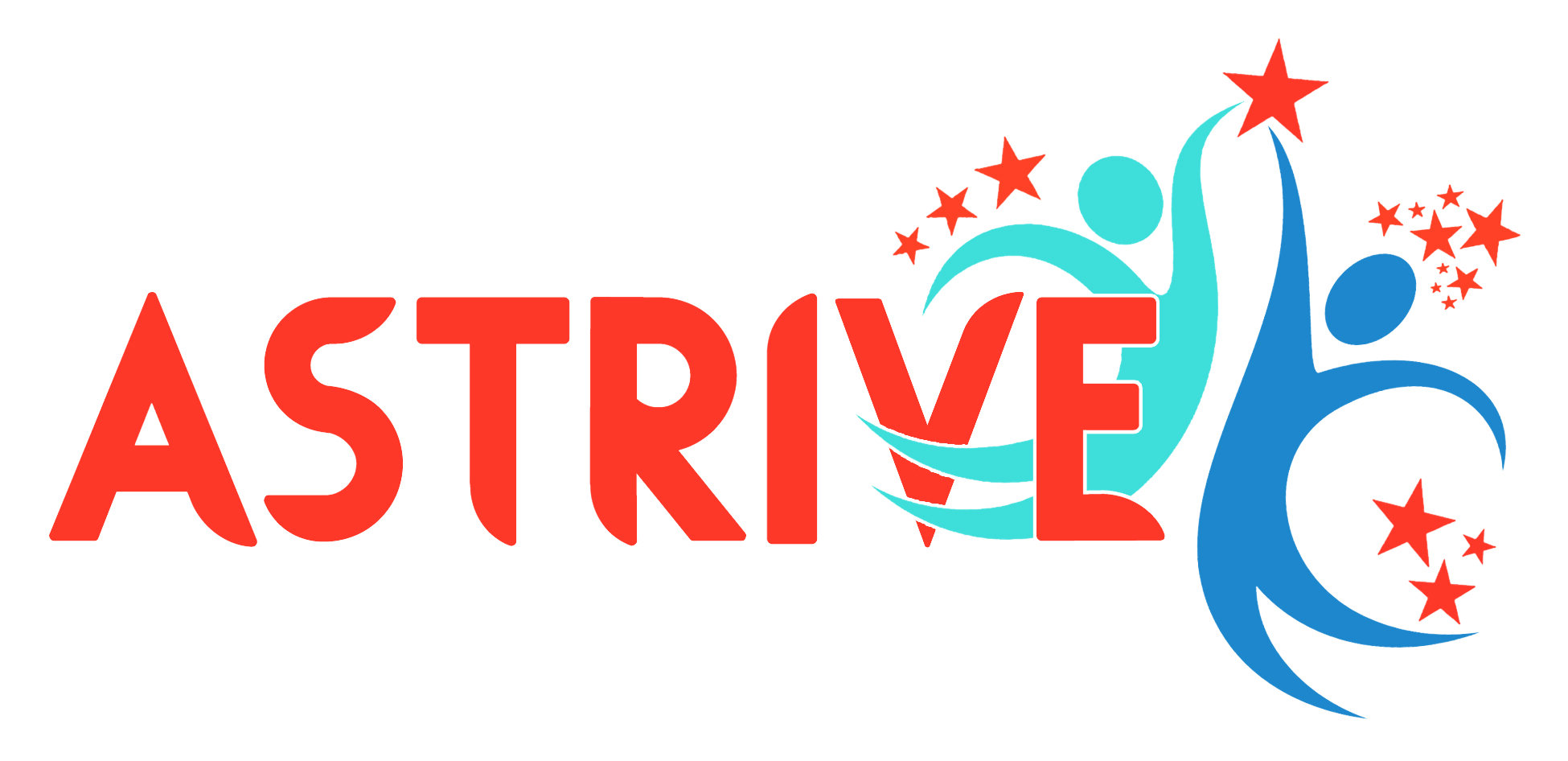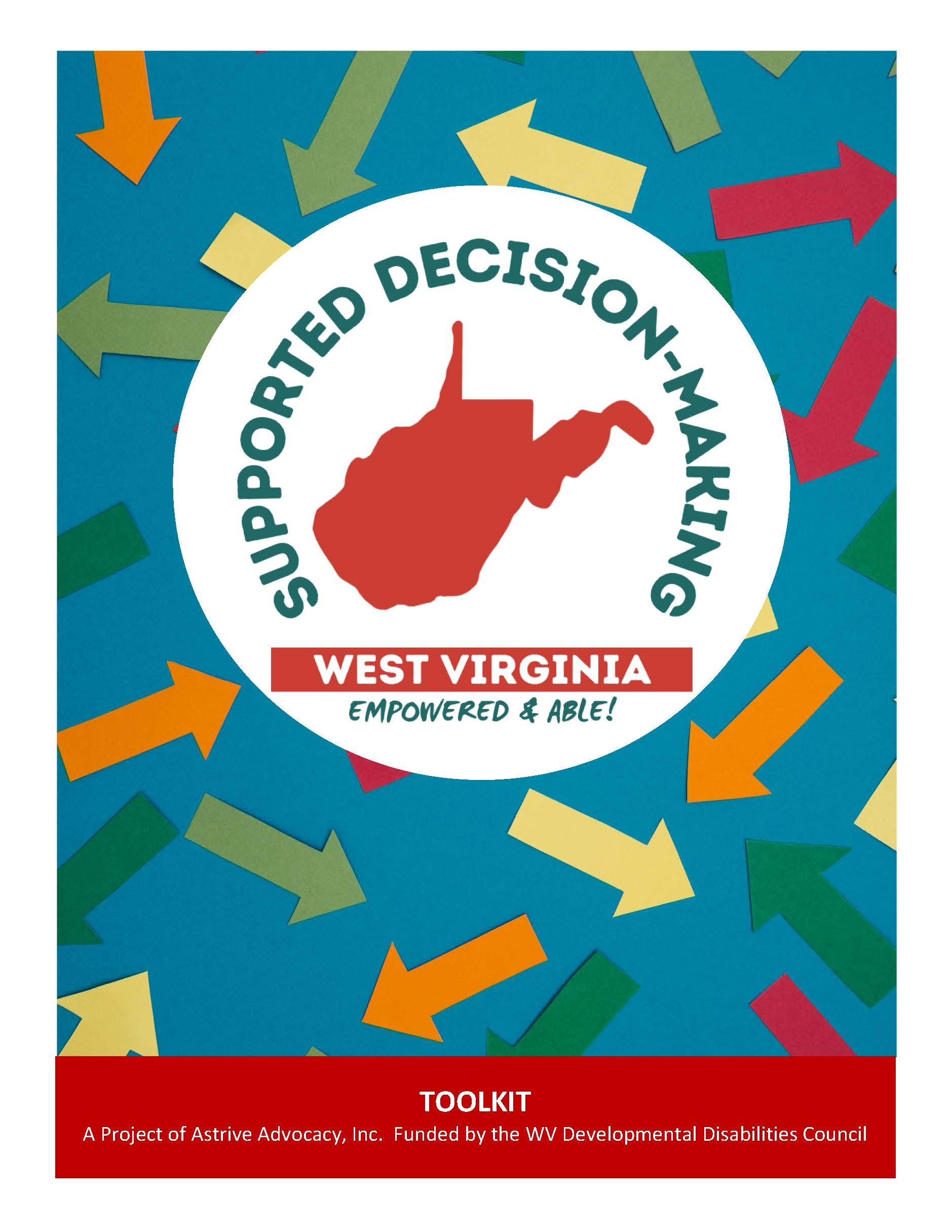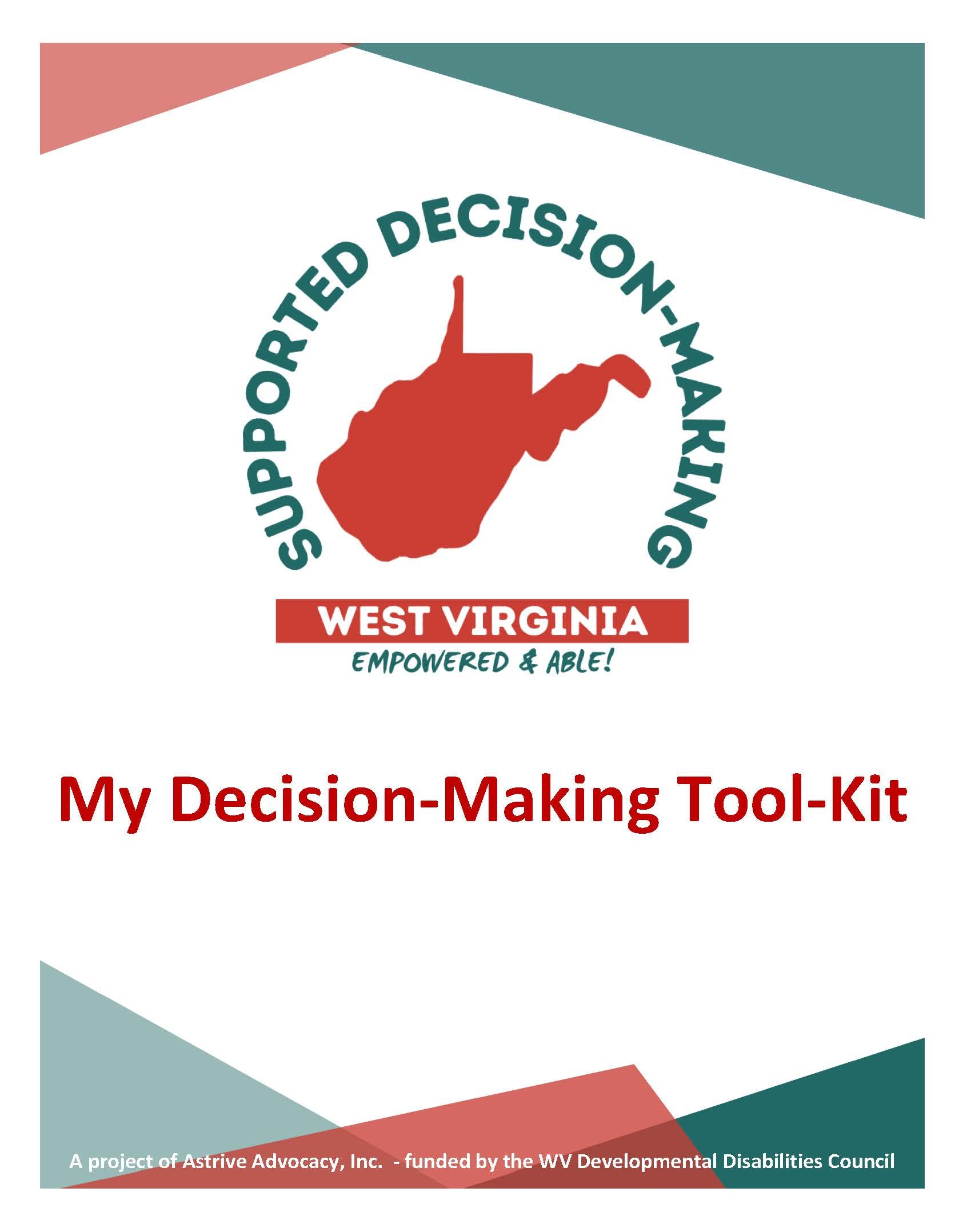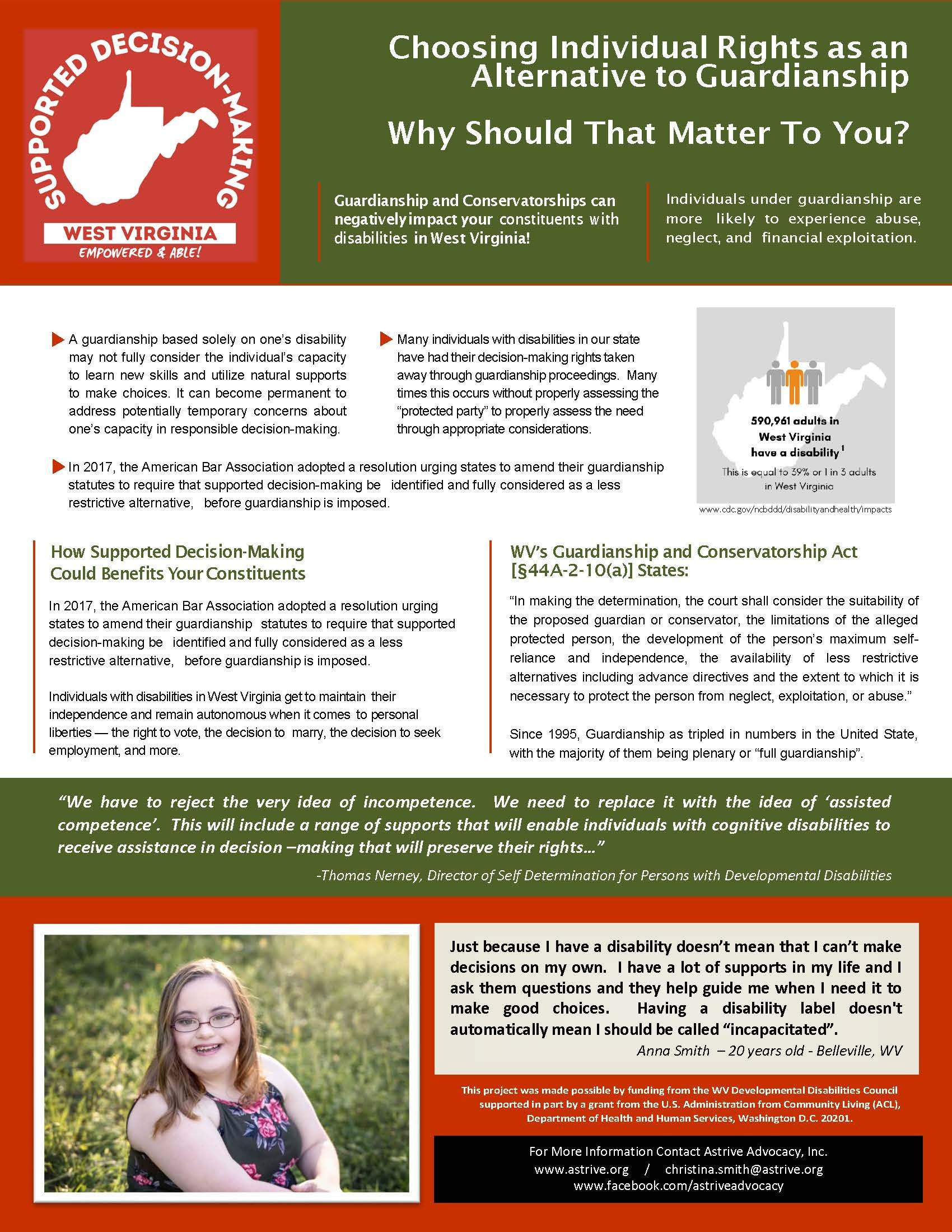This project is implemented through Astrive Advocacy and made possible by funding from The West Virginia Developmental Disabilities Council (WVDDC).
Supported Decision-Making
Current state practices in working with people with cognitive, intellectual, and/or developmental disabilities rely heavily on the use of guardianship/conservatorship, which is the court appointment of a substitute decision maker after a legal finding of decision-making incapacity. Appointment of a guardian/conservator removes the legal rights of people to make their own decisions about health care, residence, how their money is spent, and more. Critical to self-determination is the opportunity to make one’s own decisions. Opportunities for self-determination are often compromised when individuals are under guardianship, which can lead to poorer outcomes.
Supported Decision-Making (SDM) can be used as a way to support and accommodate people with disabilities and older adults with the decision-making process. A person chooses supporters to help them with the decision-making process, but the person makes the final decision. Supported decision-making has shown promise to increase self-determination and quality of life, and to alter the prevalent view that older Americans and people with disabilities inevitably require guardianship. Although there is no ‘‘one-size-fits all’’ model of supported decision-making, it generally occurs when people use one or more trusted friends, family members, professionals, or advocates to help them understand the situations and choices they face so they may make their own informed decisions (Dinerstein, 2012; Quality Trust, 2013).
Supported Decision-Making agreements can be used in combination with other legal arrangements, including Power of Attorney and limited guardianship. These options are not mutually exclusive and can be used to complement each other, with it being a valuable tool even when the legal right to make some or all decisions has been transferred to a guardian. While some states have enacted supported decision-making legislation, others are still in the process of exploring legislation, with several who have formalized the request for legislative studies or have established task forces. Furthermore, the American Bar Association adopted a Resolution August 14, 2017, encouraging the use of Supported Decision-Making as an alternative to guardianship, and specifically urged states to revise their statutes to include supported decision-making as a legally recognized option. (http://www.disabilityrightswi.org/wp-content/uploads/2018/11/ SDM_FAQ_final.pdf)
It is imperative that individuals with disabilities, families, school personnel, providers, lawmakers, and community members be educated on the importance of this concept, and that a strong plan for systemic acceptance of this initiative that focuses on Supported Decision-Making is realized.
Click the images below to download the associated documents
Additional Resources
Supported Decision Making Resource Library –
https://www.aclu.org/other/supported-decision-making-resource-library?redirect=supported-decision-making-resource-library
http://supporteddecisionmaking.org/legal-resource/supported-decision-making-model-agreements
Support My Decision Initiative - A User’s Guide for People with Disabilities and Their Supporters (MAINE)
www.supportmydecision.org - Decision-Making Options Comprehensive Resource Librhttp://supporteddecisionmaking.org/content/resource-library
How to Write A Supported Decision Making Agreement - ACLU (www.aclu.org)
Supported Decision-Making Brainstorming Guide –
http://supporteddecisionmaking.org/sites/default/files/sdm-brainstorming-guide.pdf
Alternatives To Guardianship
Click the link below to be taken to the Futures Planning page with additional resources for Alternatives to Guardianship.
This document was designed to educate policy-makers and elected officials on the consideration of Supported Decision-Making as a formal alternative to guardianship.











